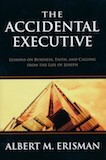How Being Too Competitive Too Early Can Hurt You
Blog / Produced by The High Calling
Back in the 1960's, scientist Peter Higgs "believed that a subatomic particle must exist that made matter clump together to form everything around us today," writes Justin Zoradi on Storyline. (As a words and music gal, I really like this non-scientific definition of the "God particle.')
The problem? No scientist or company had the technology to prove that the particle, which held the building blocks to the universe, existed--until recently. Undeterred, Higgs kept working anyway.
Says Zoradi, "Peter Higgs had the long-term view. He knew his particle could be proven one day...As a young physicist he didn’t pout like a child because no one was listening to him. Instead, he put his head down and...waited for the time his career would peak--just the right moment. And peak it did. This year [at age 84!] he won the Nobel Prize for Physics and had his 50-year-old theory proven in a room full of his peers. How’s that for a good 2013?"
If you're like me and Zoradi, you take the short view too often. Instead of believing that, in time, our hard work and dedication will pay off--and that our success may look different from others' success--we worry about the things we're not doing, the goals we haven't met, and the places we're haven't been invited.
What if, instead, we put our head down? What if we became a tortoise, instead of a hare? What if we took author/social entrepreneur Donald MIller's advice to Zoradi and set ourselves up to peak at age 65? What would that look like? And how much pressure would it take off our shoulders?
Read more.





